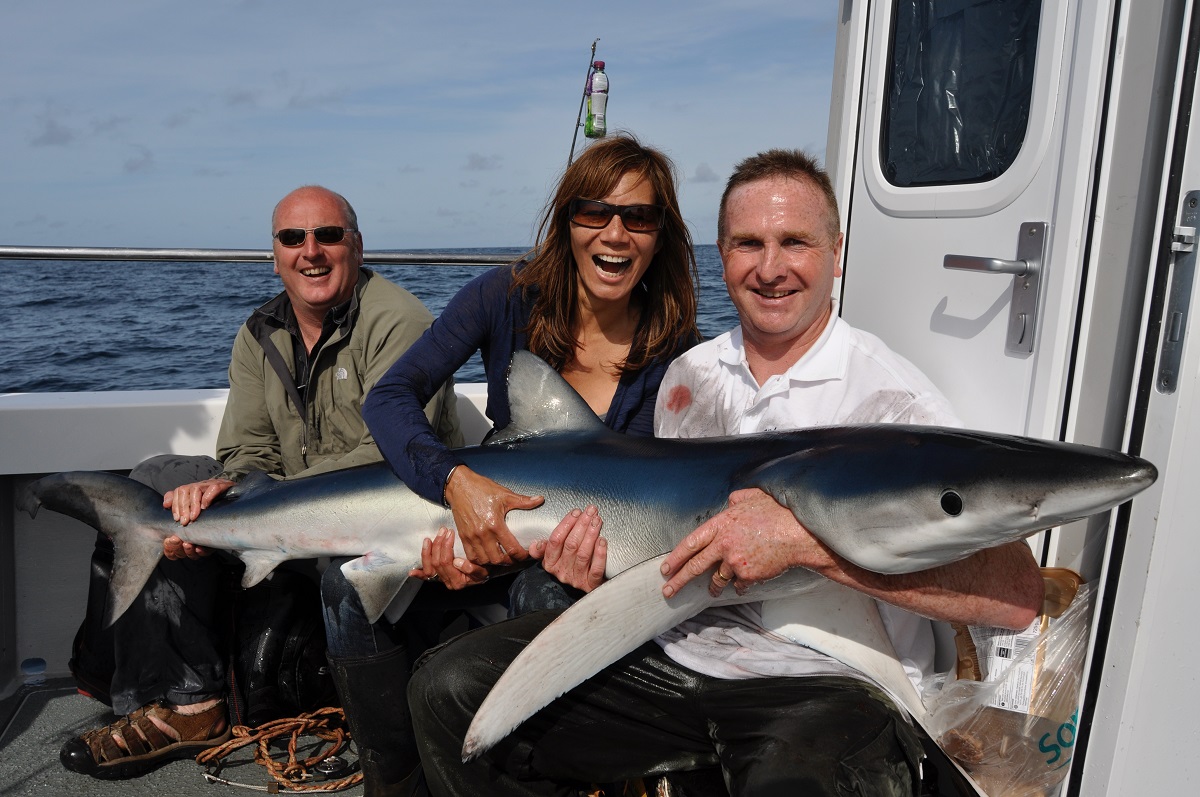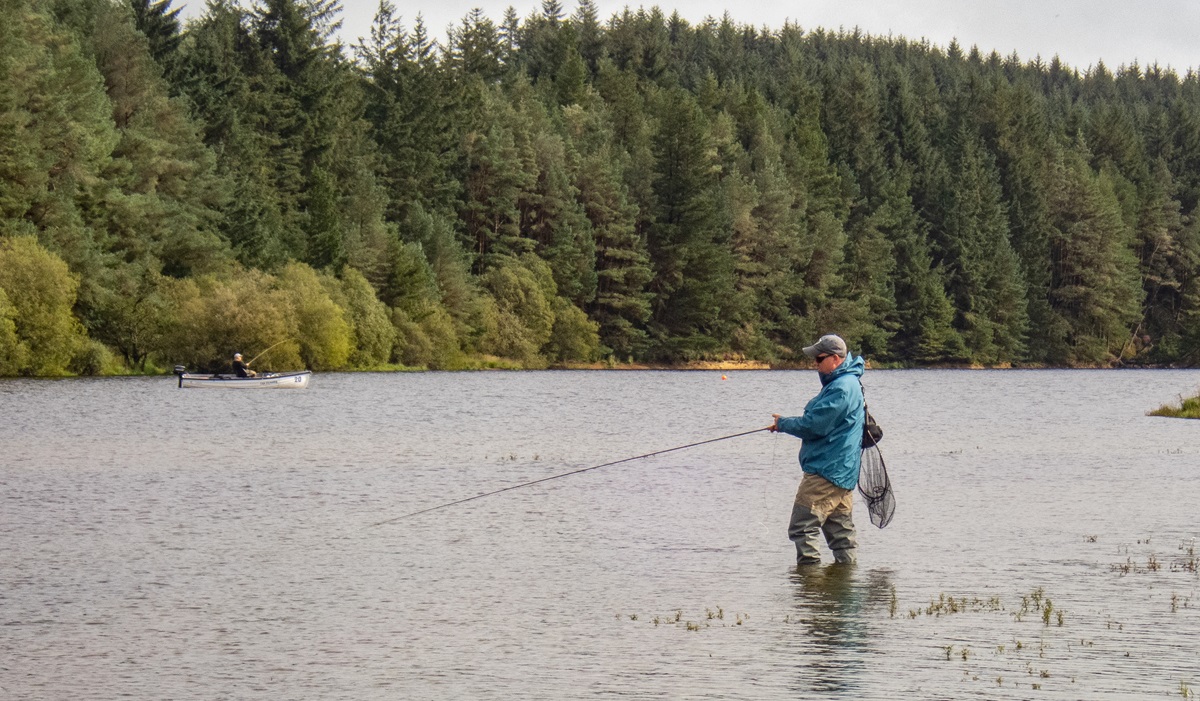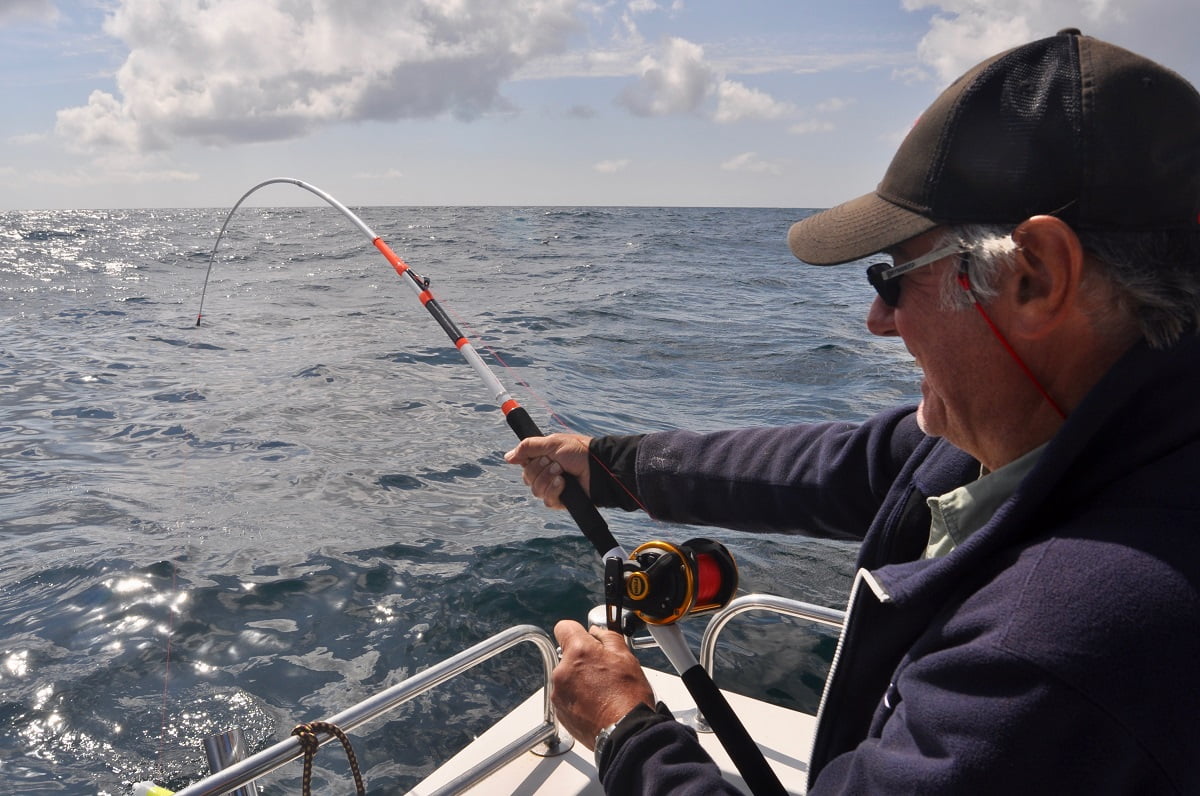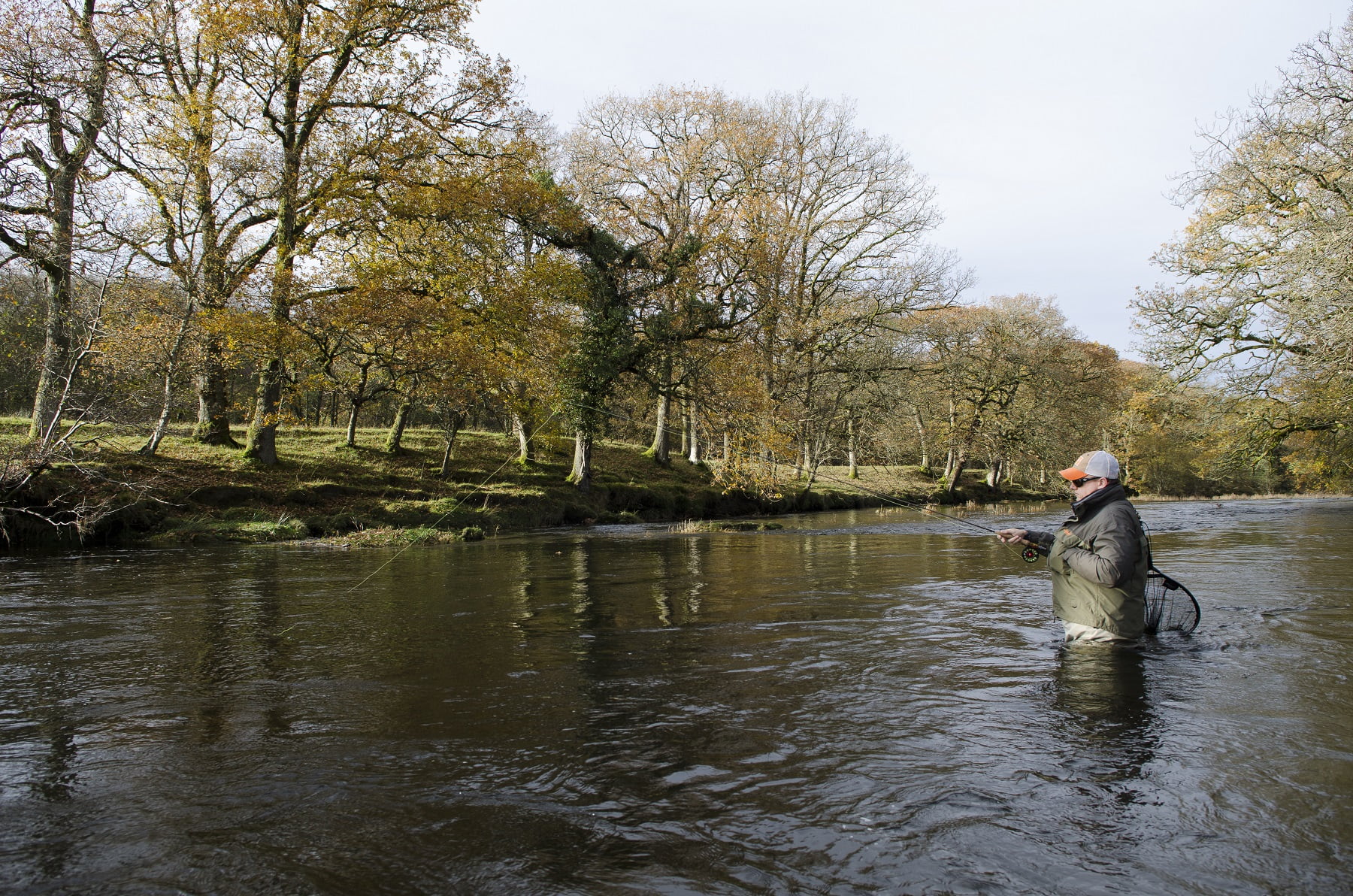Blue Shark Fishing In Wales
Many anglers who visit Wales are surprised when they learn that the waters off the Principality are widely recognised as being amongst the most productive for targeting large fish offshore, anywhere in Europe.
To date four species of shark weighing in excess of 200lb have been caught in Welsh waters; blue, porbeagle, thresher and mako. Caught on the correct tackle sharks provide wonderful sport, so it’s hardly surprising that every year many hundreds of anglers travel to Wales specifically to fish for these apex oceanic predators.
In this blog post we are going to look at tackle and tactics for targeting blue shark. The blue shark is one of several species of requiem shark, found in deep waters throughout the world’s temperate and tropical oceans. Preferring cooler waters than most species of shark, blue sharks migrate long distances, and during the summer and autumn months they are abundant off the coast of south-west Wales. The first fish generally show during June, with July through until early October being considered prime time. The average size blue shark caught in Wales is between 30-75lb, but 100lb plus fish are caught on almost a daily basis. Catches in excess of a dozen blue sharks per boat per day are regarded as being barely average.
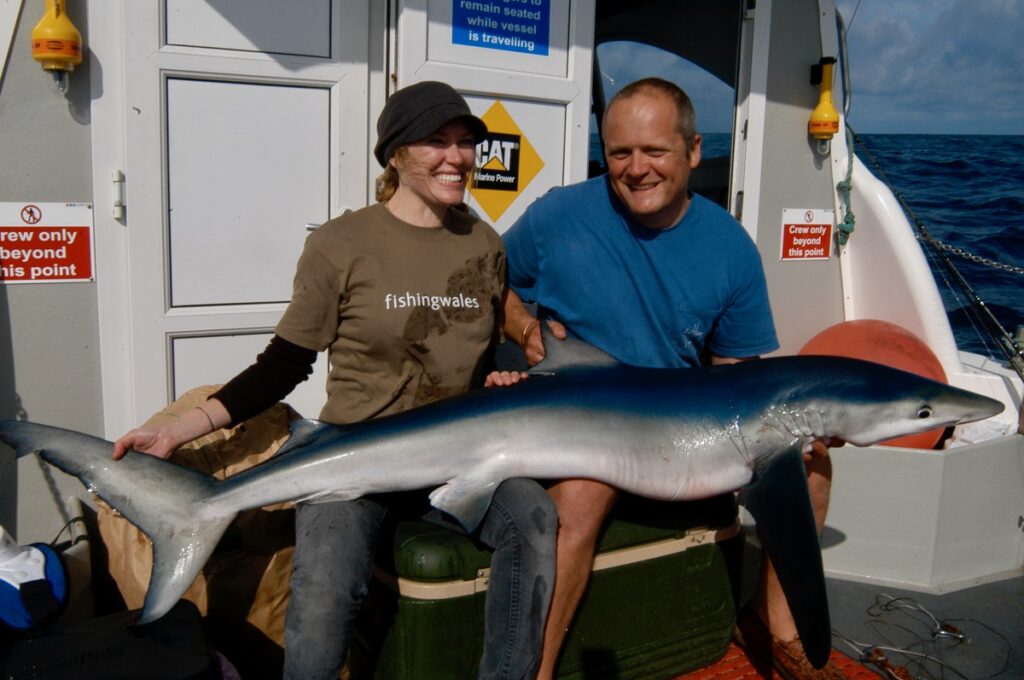
The ideal outfit to catch blue sharks is a 30lb-class boat rod, matched with a decent quality lever drag reel fully loaded with around 450-600 yards of 30lbBS monofilament. During early or late season there will always be a good chance of hooking a bonus porbeagle, thresher or even a mako shark in Welsh waters, and when this is the case upgrading to a 30-50lb class rod will be an advantage. Always follow the advice of your skipper in regards to what he deems suitable tackle for your trip. Most charter boats that target shark provide hire tackle, and it is advisable to use this for your first few trips.
A basic blue shark rig consists of a 10/0 hook. Ideally this will be bronzed and barbless, which facilitates the easiest possible release of fish. Provided that you keep the line tight you will not lose sharks as a result of using a barbless hook, which offer the added bonus that if you cannot easily remove the hook they will soon corrode free, from any fish that have to be cut free with the hook still in place. Increasingly circle hooks, which help avoid gut hooking fish, are being used in the UK.
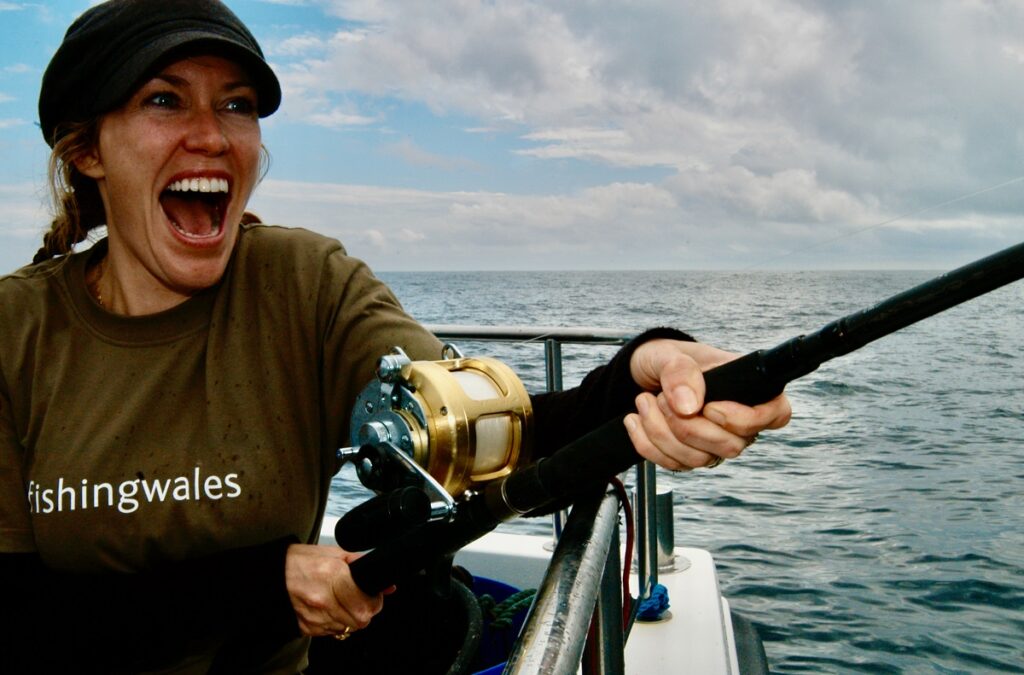
The hook is crimped to at least 3ft of good quality multi-strand stainless steel wire of at least175lb breaking strain. At the other end of the wire a strong, high quality swivel is crimped, and to this around a 20ft length of 250-300lb BS monofilament to this. This heavy ‘rubbing line’ helps prevent break offs caused by abrasion with the sharks sand paper like skin, should the fish roll up the trace during the fight. The trace is attached to the reel line via a very high-quality big game link swivel, ideally tied via a double line by tying a Bimini Twist or Spider Hitch at the end of the reel line. A double line attachment provides the very strongest knot strength.
Shark baits are fished at various depths held in position by a float, usually either a balloon or plastic bottle. There are various ways that these can be fitted to ensure the bait fishes at the desired depth. Most incorporate a stop knot tied to the line in exactly the same way as when fishing a sliding float for wrasse or mullet. A good tip is to add a 1-6oz barrel lead on the rubbing leader above the wire trace, to prevent the bait from rising towards the surface as the boat drifts, and into the reach of diving gannets.
The mostly commonly used bait for blue shark is mackerel, but pretty much any other species of fish will prove effective, especially whiting, garfish, pollack and coalfish. Often your day afloat will begin with a few hours catching bait which in some areas such as the fish rich reefs off the coast of Pembrokeshire, can be as much fun as day’s the main event!
Boat fishing for shark on the drift: Two, three or more bags of rubby dubby are suspended over the side, to create an all-important scent trail to attract the fish. The stronger the scent trail the better, so be sure to freshen up the rubby dubby bags at regular intervals through the day! On most days the amount of shark action you get equates directly to the effectiveness of your rubby dubby trail. Some shark skippers provide frozen rubby dubby.

Three or four baits are positioned at varying depths and distances from the boat, with the reels left in free spool. The rod fishing furthest from the boat should be set to fish deepest, with the rod closest to the boat set to fish just beneath the rubby dubby bag. A typical bait spread will consist of the furthest line set to fish about 100 yards away from the boat with the bait fishing at 100ft. The next rod should be set about 75 yards back, the bait fishing at about 50-60ft. The third rod should be about 50 yards back with the bait fishing at 20-30ft, with the fourth bait fishing just below the rubby dubby bag, or more or less beneath the boat.
Fishing on the drift with the reel in free spool, ratchet on, is the classic way to fish for sharks. There is nothing more exhilarating than the initial metallic ‘click, click, click’ of a ratchet as a fish eats your bait then swims off with it! That said there is nothing more annoying than the persistent click, click clicking of a ratchet that yields line every time a swell or wave rocks the boat. Assuming you are using a lever drag reel this can be easily avoided by gently easing the lever forward so as to apply just enough drag to prevent anything other than a run taking line off the reel. It is advisable to either tie your rod to the boat or ensure it is held secure in a good rod rest.
With the baits set, the angler sits back to wait for a run. Often this provides an opportunity to enjoy the incredibly rich wildlife found in these waters which includes incredible numbers of dolphins and different species of sea birds, various species of whale, funky looking surface drifting sunfish, and even turtles.
Runs vary from heart stopping screamers, a result of a fish taking the bait and swimming off with it, to others where the fish plucks, pulls and plays with a bait for what can seem like an age before finally committing to the take. Experience counts for everything here. If you are new to shark fishing, you should listen to the advice the skipper offers. Personally, I am convinced that the time to hit a run is as soon as it starts to swim off with the bait, as this minimises the risk of gut hooking fish.
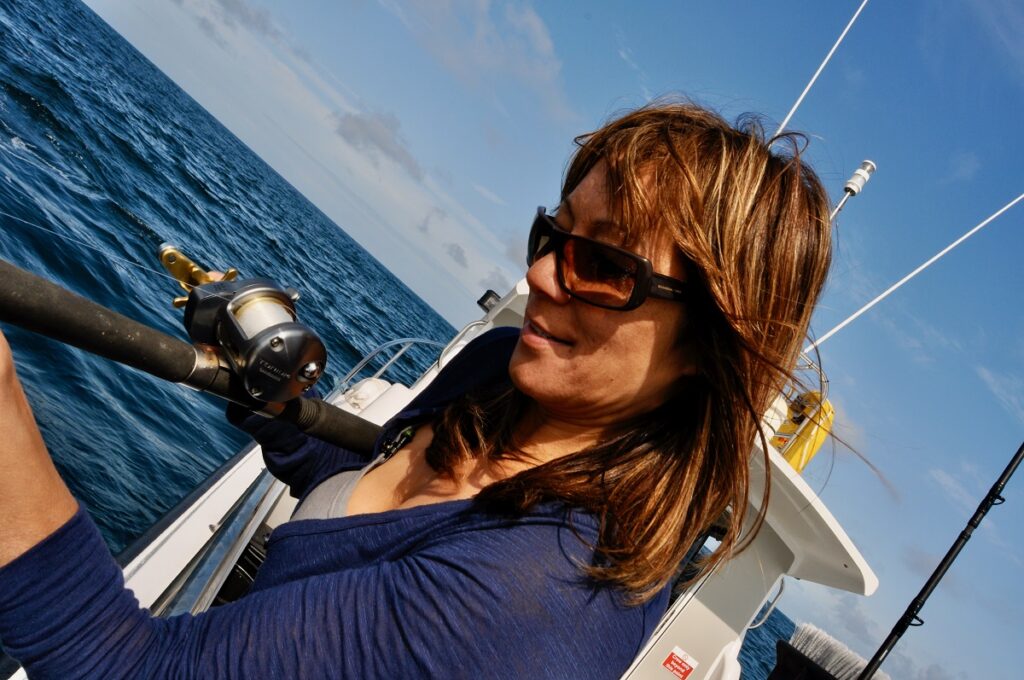
When a fish picks up a bait and is running steadily, push the lever drag forward to the strike position, wait for the line to fully tighten, then set the hook. If the run is fast set the hook by pushing the lever drag to the strike position, allow the line to fully tighten, then firmly set the hook with three or four short jabs with the rod. Imagine knocking a nail into a block of wood, short taps are far more efficient than one firm bang with a hammer. If using circle hooks it is important to remember not to strike, just allow the line to tighten.
If the fish is playing with a bait, or swimming off slowly, once again push the lever to strike only this time wind the handle swiftly until the line is tight, then set the hook as above. Attempting to set a hook without first ensuring the line is tight will result in many fish dropping the bait. Keep the rod bent at all times to maintain pressure on the fish, and never try and stop a fish taking line with your thumb on the spool, or worse still, attempt to wind when a fish is taking line. Provided your drag is set and your knots are sound, in most cases once a fish is firmly hooked you should successfully fight it to the boat.
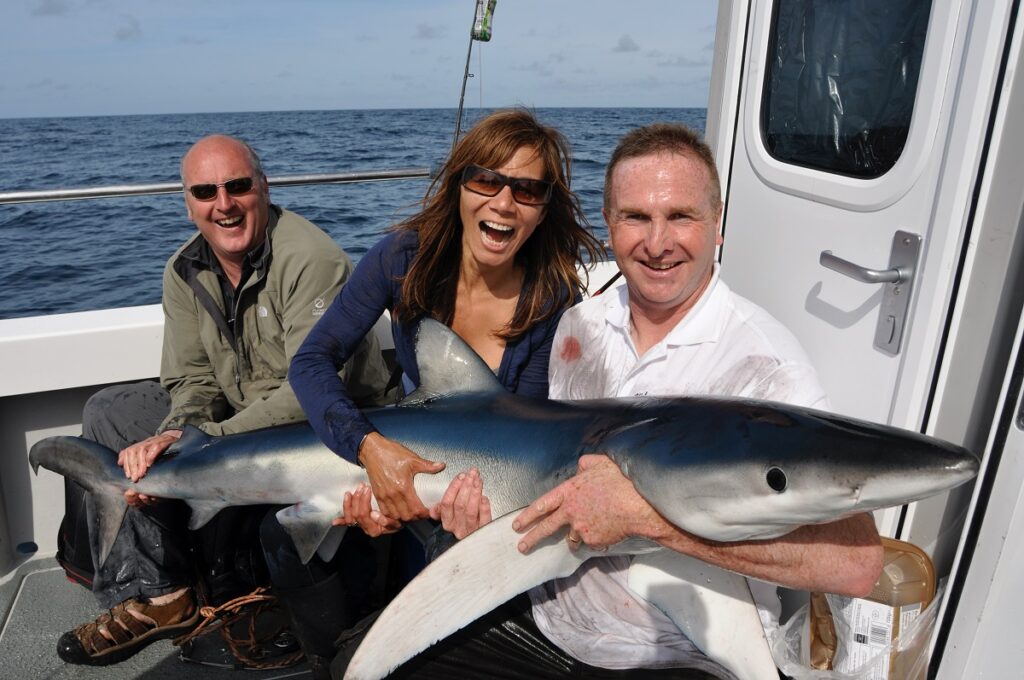
Milford Haven is the main focus point for shark fishing in Wales, with charter boats based at both Neyland and Milford Haven marinas. Shark charters can also be booked aboard charter boats based at Porthclais, near St David’s, and also Tenby, Saundersfoot and, occasionally as far east as Swansea. The shark season is an extremely busy time for Welsh charter skippers so it is essential to book well in advance, ideally the previous year if you have specific holiday dates. You can either charter the whole boat, or book an individual place aboard a trip. Local tackle shops and, of course, the internet, will put you in touch with a suitable charter boat.
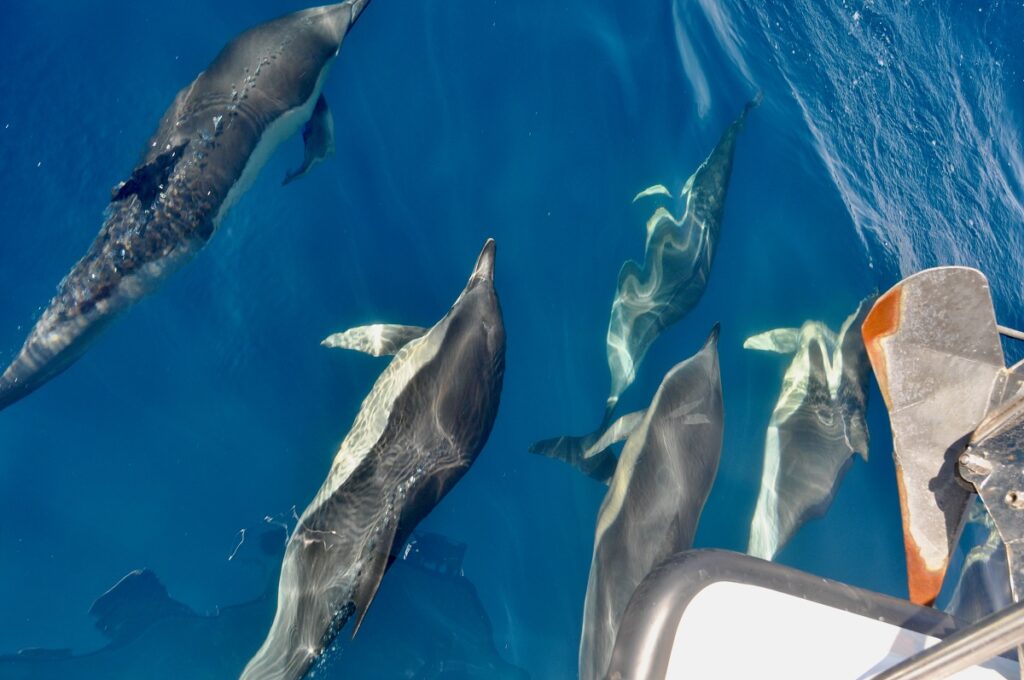
Images show Cerys Matthews and Anna Ryder Richardson fishing for blue shark off the Welsh coast.
Words & Images: Dave Lewis
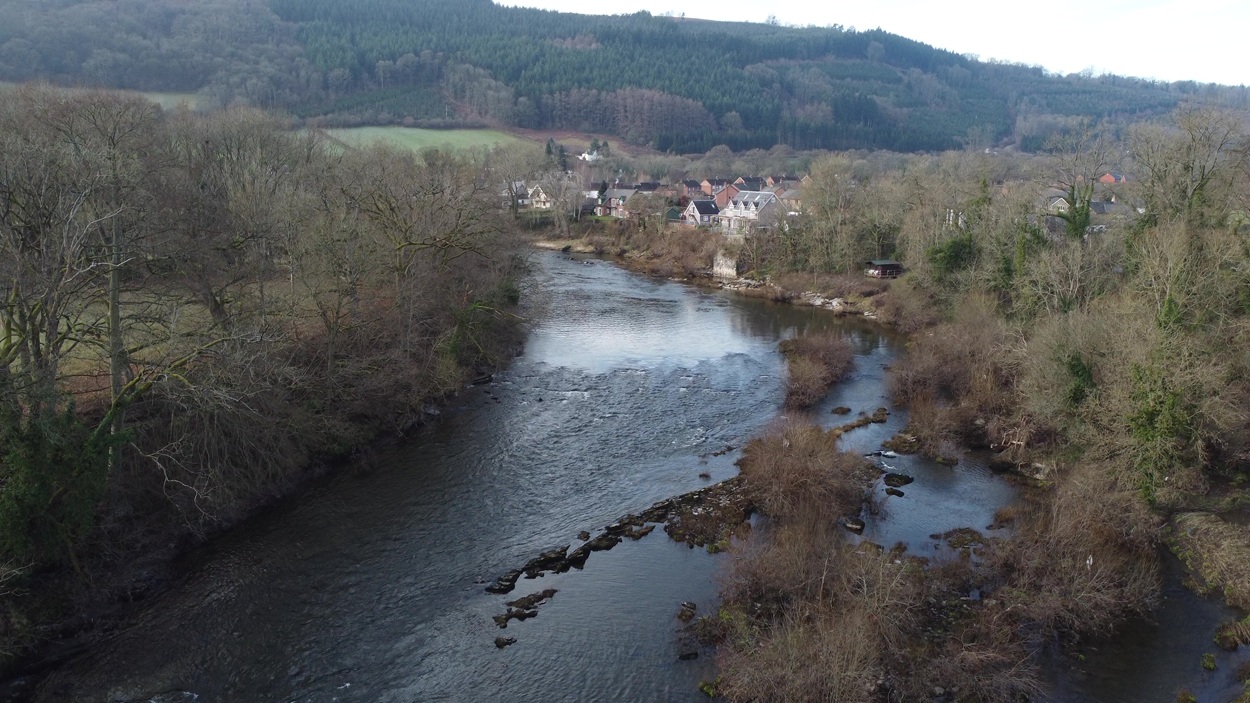
Wye & Usk Foundation Fishing Passport News
The latest newsletter from WUF – with details of fishing opportunities for Wales!Contact The Fishing Passport for more information and…
Read More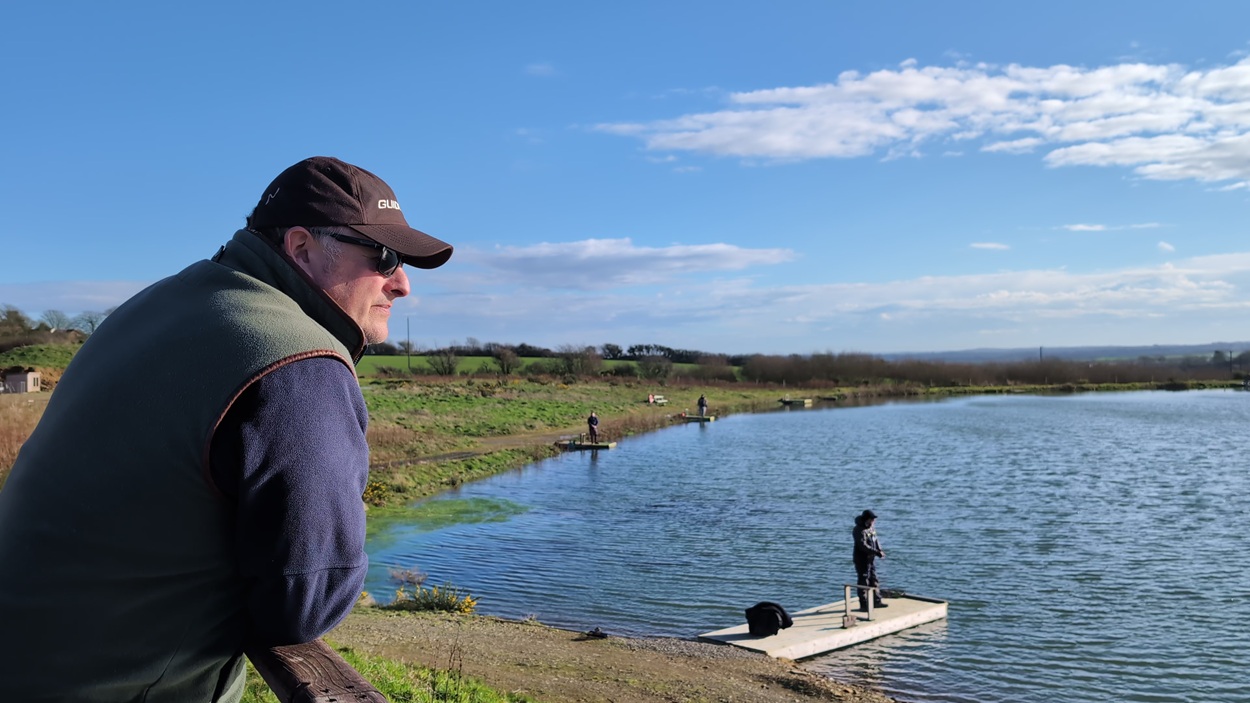
Fishery Profile VIDEO: Foxhill Trout Fishery West Wales
We visit Foxhill Fishery, a trout fly fishing venue near the village of Camrose, just outside Haverfordwest in Pemrokeshire.
Read More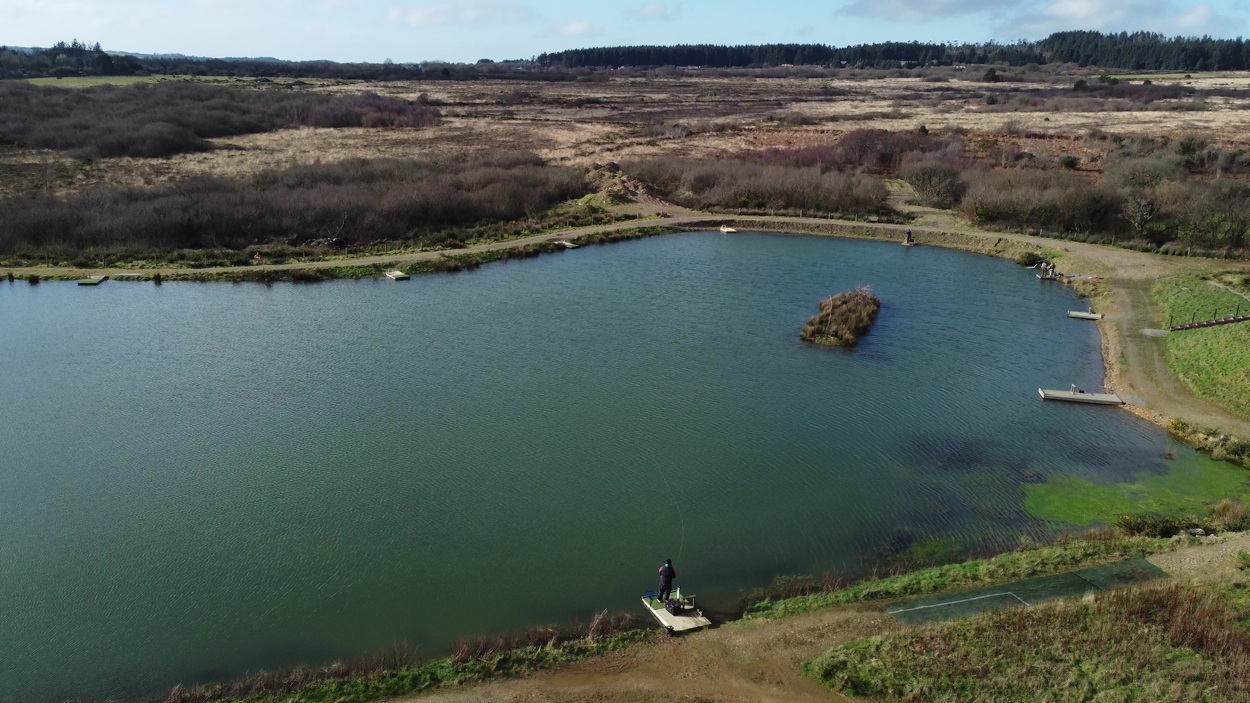
The 4 +1 Fly Fishing CHALLENGE - Foxhill Trout Fishery Wales
We join Hywel Morgan at Foxhill Fishery in Pembrokeshire, West Wales, where he attempts to catch trout on 4 differing…
Read More
